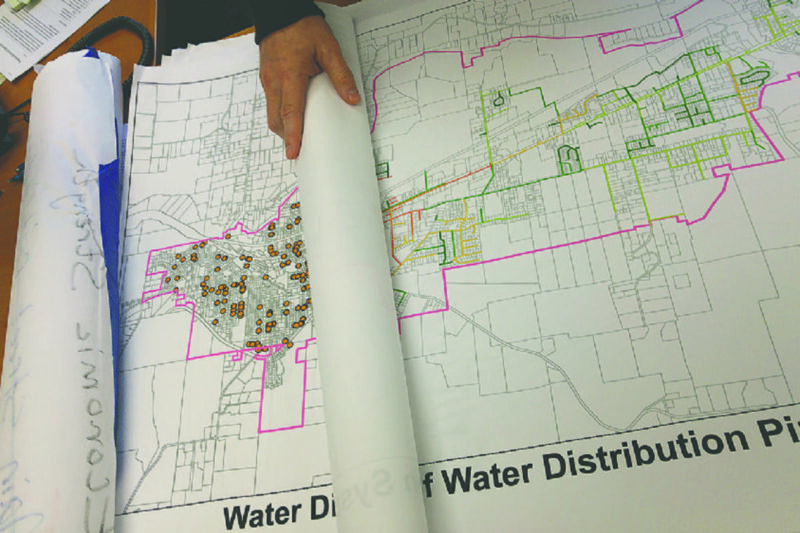Sean C. Morgan
The Sweet Home City Council last week approved a $170,000 contract to replace waterlines on Grape Street and Grape Loop off 18th Avenue.
The contract went to ML Houck Construction Co. of Salem, the low bidder. Seven qualified contractors bid on the project. Funding for the projects comes from the city’s Water Depreciation Capital Fund; the project is part of the city’s 2016-17 budget.
The project will replace 1,350 feet of 2-inch waterlines with 6-inch lines. The project area includes 22 customers.
The city has a number of older small-diameter waterlines that are increasingly failing due to age, said Acting Public Works Director Joe Graybill. The constant small leaks or pipeline breaks.
The city has an active Capital Improvement Plan to evaluate all of its lines and a program to replace them over time as funding allows, he said.
“We attempt to make annual progress to reduce the low flow and pressures faced by the residents on small line segments and (to) preserve the city’s water production for its intended use.”
The city has been replacing 2-inch waterlines with two projects per year, Graybill said. The last one was on Cedar and Elm streets south of Mountian View Road in the fall.
With the program, Graybill said, the city is making and will continue to make gains and reduce the overall losses.
“We’ve got a lot of lines like this in town,” said Tim Riley, city mechanic. As the old lines are blocked by corrosion, they provide a trickle of water.
City Manager Ray Towry said that, based on information he received from former Public Works Director Mike Adams, the city is losing up to 47 percent of its water in distribution.
For every gallon of water the city provides to a customer, he elaborated, it produces and loses another .47 gallons through leaks.
Towry said that estimate has decreased to something more like 30 to 35 percent at this point.
“You’re absolutely paying to throw water away and potentially undermining your road beds,” he said. “We have to sit down and tackle these issues.”
But unfortunately, it requires funding, he said.
“It’s unfortunate, but really all cities have that same problem because of the age of their waterlines,” Graybill said.
Any number higher than 30 percent is too much, he said. “You’ll never get to zero.”
Getting into the 10- to 15-percent range is ideal, he said. Until then it’s a “death by 1,000 cuts.”
If the city were able to stop all of the leaks, Graybill said, then it wouldn’t have to produce as much water.
Towry said that projects can disproportionately improve the system. For example, a project that fixes 5 percent of the pipes could decrease losses by 10 percent.
While large leaks pool up and are easy to spot, smaller leaks are hard to detect, he said. The ground soaks up pinhole leaks at the bottom of a pipe.
To find leaks, the city uses electronic devices to detect the sounds of leaks.
“We don’t see it, but it’s constant, every single minute,” Graybill said. “That’s why we have the 2-inch replacement program.”
Not only do they halt the loss of water, new pipes provide better flows to neighborhoods as the city upgrades the size of the lines, he said.
Six-inch pipes are newer, higher quality, Graybill said, and they’re more durable. Today, new waterlines must be 6 or 8 inches.
Present and voting to award the contract during their regular meeting on April 25 were Susan Coleman, Lisa Gourley, Ryan Underwood, Mayor Greg Mahler, Dave Trask, James Goble and Diane Gerson.





